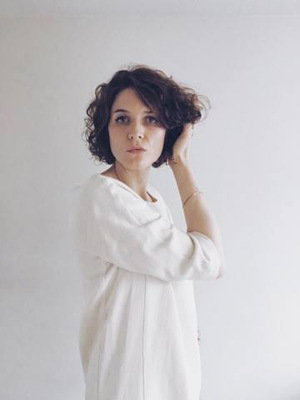Marija Djačenko, "Time to open the windows and clear the air" 5
In brief: I remember Marija Djačenko from a time when many knew her as the young writer who had published a collection of short stories You Agree (Sutinki, 2005) while still studying in high school. Later on Marija left for England and appeared again in the literary context after 8 years when she published a book of short stories Full of Grace (Malonės pilnoji). A new literary project initiated by Marija came to life recently: charlesmethugo.com; it has become a pretext to start a conversation about memories, Europe, books and ideas.
Author has lived in London for about 10 years. I wanted to know how Marija sees the city. According to her London gives the freedom to think, be yourself and a freedom to live. "Of course, one can argue that if you are in harmony with yourself then you cannot be anyone else. However, I know only a few people who are not impacted by their environment. Personally, I always subconsciously try to merge with environment. And London does not care. I admire its strong character, despite changing and having so many different cultures it never loses its identity."
I was wondering whether Marija participated in England's literary life. Author says, "To me literature is a printed text per se. And it does not matter whether it's an ad in the window or M. Coetzee's Disgrace. I always had this dreadful feeling that I will never belong to this so-called literary community that reads serious books and can quote Pushkin. Sometimes we meet with friends who like writing, we share our views, discuss a book we read, invent a project and that is enough."
I wanted to ask why the author was so fascinated with Bukowski. Marija Djačenko answers, "Am I? His novel Post Office was this "wow" moment for me when I realized that things can be done differently. After the Post Office I read his Tales of Ordinary Madness and that book had a really similar effect, maybe because I read it in English. Charles Bukowski was an open and a relatively free man, at least in his thinking."
I mentioned Bukowski, because recently author has set up a literary webpage Charles met Hugo. Marija Djačenko explains, "Charles met Hugo, as in Charles Bukowski met Hugo Boss is a shameless ambition to combine two disparate things - writers' personalities and commerce. I noticed that in the West some writers are comparable to music of film stars: their faces are often on the covers of the magazines, people write about them, they are heard and seen; their books are read and they live well. I do not want to throw stones into the Lithuanian Writers' Association's garden but they should really open some windows up and clear the air, just like many Lithuanian cultural institutions."

